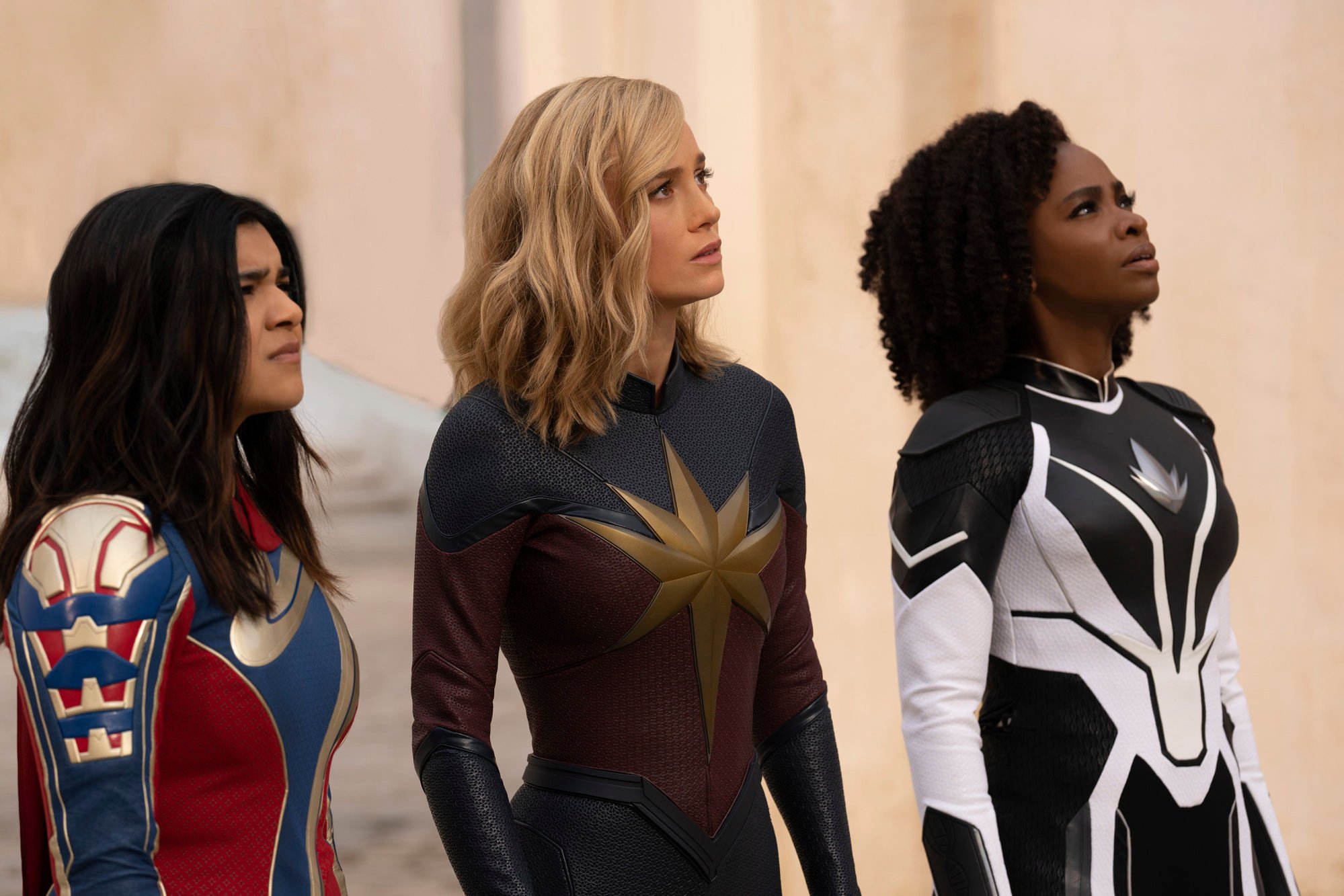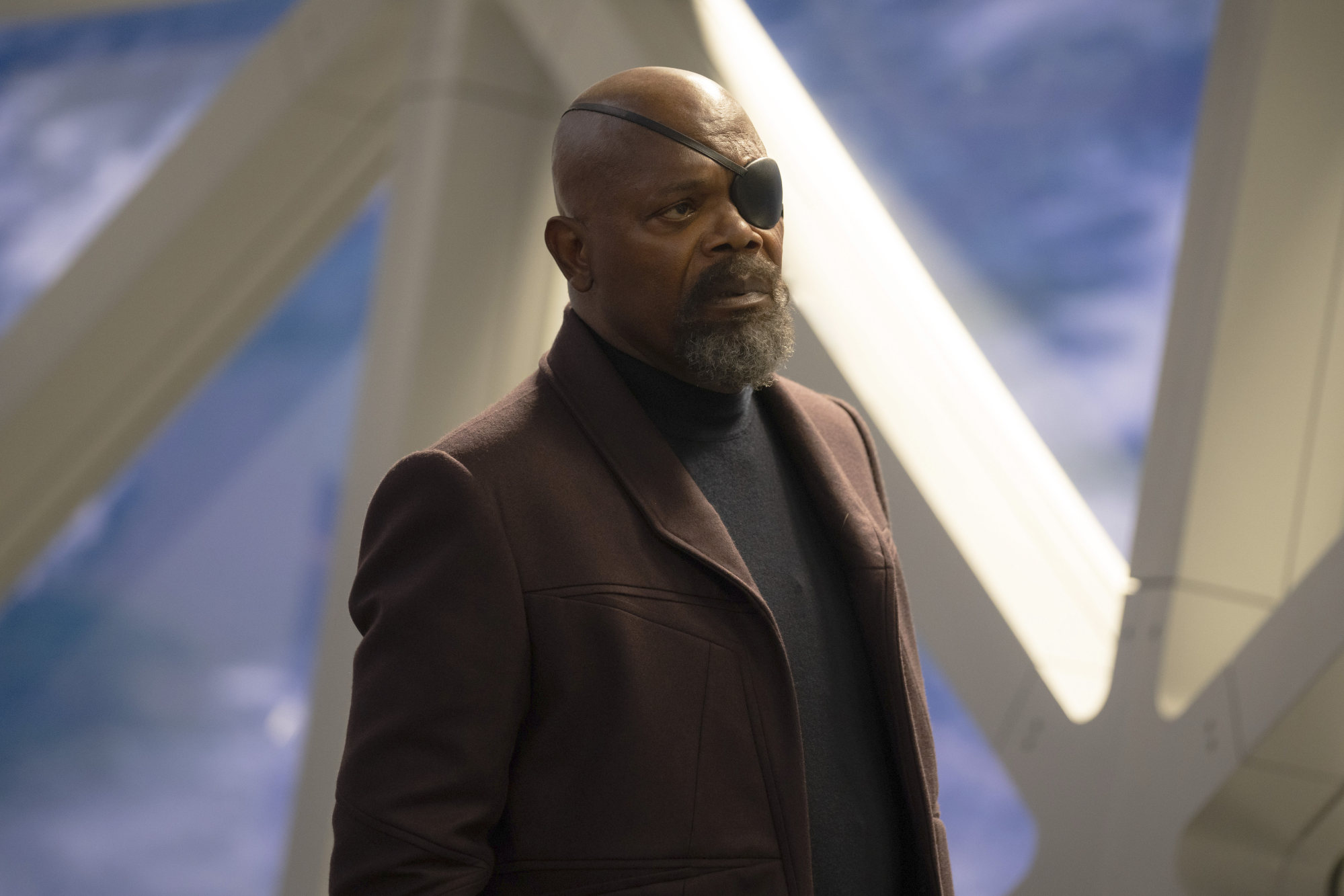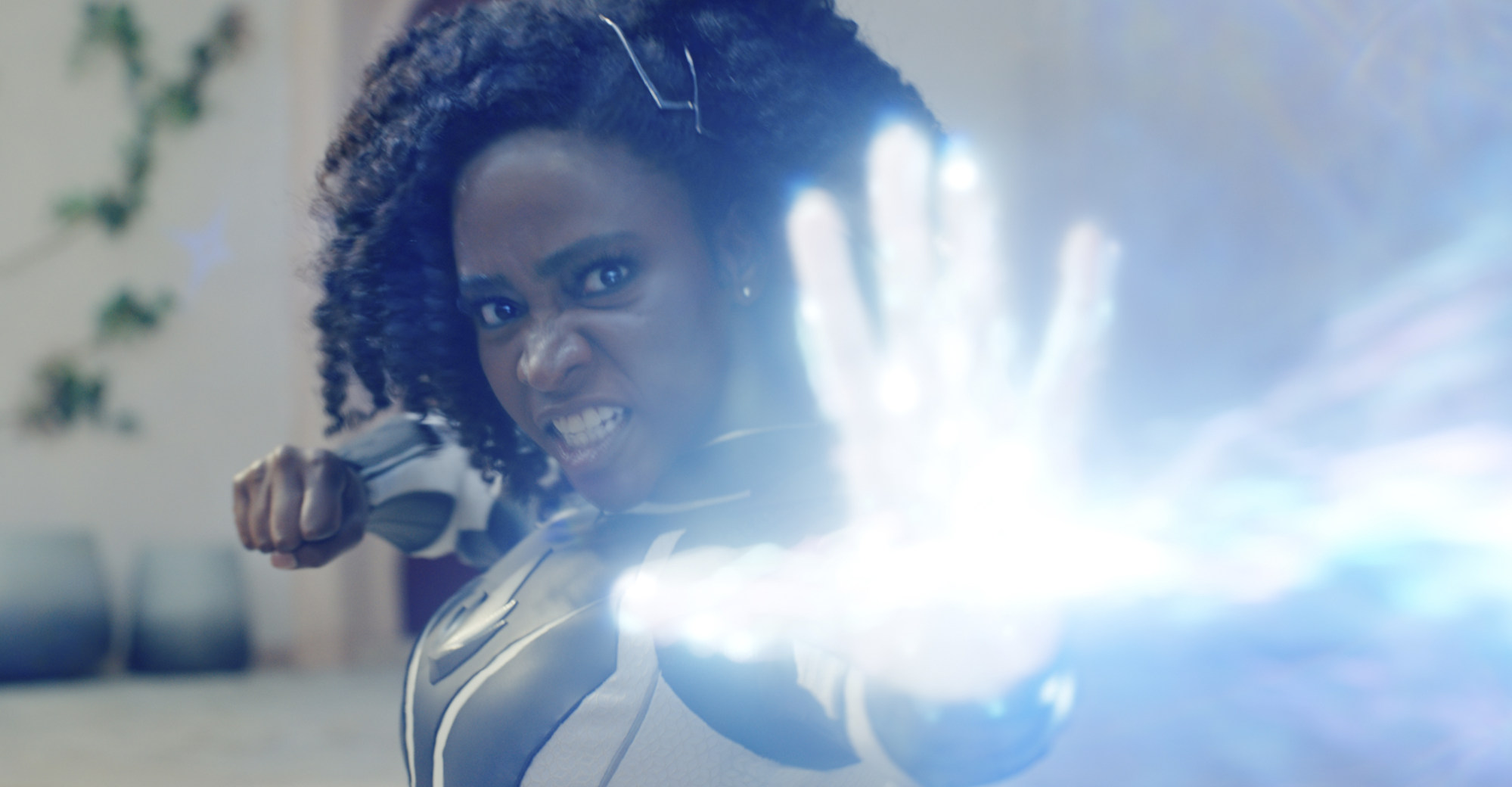
The Marvels director Nia DaCosta on superhero movie problems, why she took the job, and relating to Carol Danvers and Ms. Marvel
- Nia DaCosta says the growth of superhero movies has to eventually stop because it gets to the point where they’re so big they can’t take risks
- She explains that she was drawn to ‘a really crazy, sci-fi space opera’ that was wacky and tonally different from most MCU films
Nia DaCosta, director of the upcoming movie The Marvels, has a diagnosis for the recent struggles of superhero films. It basically comes down to: “Mo’ money, mo’ problems.”
Success inevitably breeds bigger budgets. Box-office expectations get inflated. Even superhero spandex can’t sustain endless cycles of wash, rinse and repeat.
“Growth has to stop at some point,” DaCosta says. “As you make more and more films, you want those films to be more interesting, more dynamic and to appeal to different audiences. But that requires risk.
“And there’s a conundrum where you’re so big that you can’t take risks. I think that’s what the audience is feeling. They’re like: ‘I’ve seen it before, and I liked it the first time.’”

When The Marvels opens in cinemas in November, it will be debuting in uncommonly uncertain times for superhero films. There’s talk of over-saturation. DC and Warner Bros are in makeover mode. Box-office dominance this year has been ceded to Barbie and Mario.
While no one’s doubting the supersized place of superheroes in Hollywood, mass success for Marvel no longer seems quite so automatic.
“The more we can do that as an industry, the better,” DaCosta said in a recent interview, praising the originality of that animated Marvel movie released earlier this year. “I also think you have to not set your sights on such a big box-office return so then you can comfortably take risks.”
By any measure, The Marvels is one of autumn’s most anticipated titles. But it’s also a big-budget attempt to try some new things.

It’s the first Marvel movie to feature not just all-female leads but a female villain (Zawe Ashton plays Dar-Benn), as well. DaCosta, 33, is the youngest filmmaker to direct a Marvel Cinematic Universe (MCU) release. She’s also the first black woman to do so.
“Day to day, I don’t really think about it. But it is nice to finally have a black woman directing one – it just happens to be me,” DaCosta says, laughing.
My mom once forgot to invite me to a family thing because she forgot I was in town. Stuff like that makes me go, ‘I need to connect more’
DaCosta was drawn to what she calls “a really crazy, sci-fi space opera” that was wacky and tonally different from most MCU films.
“I wanted to honour what they set out to do, which is make something very frankly strange,” she says.
The heart of the film for DaCosta is about the dichotomy of Danvers and Ms. Marvel. While Danvers has been tirelessly doing the solitary work of Captain Marvel out in deep space, Ms. Marvel’s foundation is her family.

DaCosta, a self-described workaholic, can relate.
“I mean, this my third film in six years and I’m onto my fourth,” she says. “I’m from New York City and my family’s mostly there and I’ve never shot there since I’ve been working.
“My mom once forgot to invite me to a family thing because she forgot I was in town. Stuff like that makes me go, ‘I need to connect more.’”
DaCosta’s ascent has been meteoric but steady, even though she’s more comfortable with self-deprecation than self-promotion. Instead, her level-headed filmmaking talent – particularly for conjuring atmosphere and playing with perspective – has fuelled her success.
After making Candyman, a Marvel movie was, DaCosta says, “definitely not in my near future”. But it also wasn’t entirely off her radar. She’s wanted to direct one since she started making films and traces her interest directly to Sam Raimi’s Spider-Man. She saw it when she was 12.
“And I still love it,” she says.
“I was like, ‘Wait, what?’ Then I kind of got it,” DaCosta says. “He was like: just bring yourself to it. It’s a big thing. It’s really a Kevin Feige movie, it’s a Marvel film. But they chose you for a reason.”

